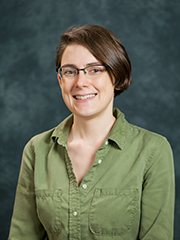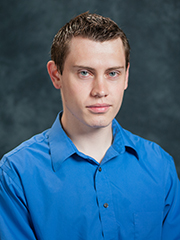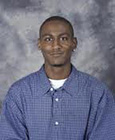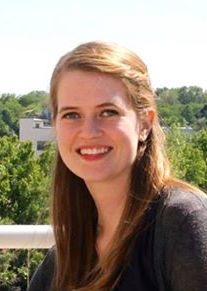Director
Thomas Joiner, Ph.D.
Distinguished Professor of
Psychology
he/him
THOMAS JOINER grew up in Georgia, went to college at Princeton, and received his Ph.D. in Clinical Psychology from the University of Texas at Austin. He is The Robert O. Lawton Distinguished Professor in the Department of Psychology at Florida State University (FSU), Tallahassee, Florida. Dr. Joiner’s work is on the psychology, neurobiology, and treatment of suicidal behavior and related conditions. Author of over 515 peer-reviewed publications, Dr. Joiner was awarded the Guggenheim Fellowship and the Rockefeller Foundation’s Bellagio Residency Fellowship. He received the Young Investigator Award from the National Alliance for Research on Schizophrenia and Depression, the Shakow Award for Early Career Achievement from the Division of Clinical Psychology of the American Psychological Association, the Shneidman Award for excellence in suicide research from the American Association of Suicidology, and the Award for Distinguished Scientific Early Career Contributions from the American Psychological Association, as well as research grants from the National Institute of Mental Health, Department of Defense (DoD), and various foundations. The Lawton Professorship, which Dr. Joiner received in 2010, is FSU’s single highest honor.
He is a consultant to NASA’s Human Research Program, and is the Director, with Pete Gutierrez, Ph.D., of the DoD-funded Military Suicide Research Consortium, a $30 million project.
Dr. Joiner has authored or edited seventeen books, including Why People Die By Suicide, published in 2005 by Harvard University Press, and Myths About Suicide, published in 2010, also with Harvard University Press. The book Lonely at the Top was published by Palgrave MacMillan in October, 2011, and the book The Perversion of Virtue: Understanding Murder-Suicide was published by Oxford University Press in 2014.
Largely in connection with Why People Die By Suicide, he has made numerous radio, print, and television appearances, including write-ups in The Wall Street Journal and The Times of London, a radio interview on NPR’s Talk of the Nation, and two appearances on the Dr. Phil Show. He runs a part-time clinical and consulting practice specializing in suicidal behavior, including legal consultation on suits involving death by suicide. He lives in Tallahassee, Florida, with his wife and two sons, the elder a recent FSU alumnus and the younger a current FSU student.
Graduate Students
Sean’s research interests include theory and measurement of suicidal phenomena. His focuses include suicide means, suicide acceptability, and classification of suicidal behaviors, as well as cultural and cognitive factors related to suicidal behaviors. His goals are to understand and thus help detect and prevent suicidal outcomes and to reduce the suffering associated with suicidal behaviors.
Mary's research focuses on the intersection of disordered eating and self-injurious thoughts and behaviors. She is particularly interested in understanding the role body attitudes and experiences (e.g., interoception, body trust, agitation) play in these and other psychological conditions. Mary is currently working as a member of the Research and Outcomes team at a national eating disorder treatment organization, examining the clinical and treatment relevance of bodily experiences among individuals with eating disorders
Anna’s primary research interest is understanding the risk factors and outcomes for suicide-related thoughts and behaviors, and overall mental health among military servicemembers, first responders, and other special populations (e.g. Construction and Extraction Industry workforce). She is also interested in mental health stigma within the military culture, and the outcomes of treatment programs for military personnel and their families. Anna served as the Director of Florida’s Statewide Office for Suicide Prevention where she focused on propagating suicide prevention efforts throughout the state of Florida. As chair of the Suicide Prevention Coordinating Council, she fostered collaboration across state agencies and oversaw the implementation of Florida’s 2020 – 2023 Suicide Prevention Interagency Action Plan. As Florida’s resident expert in suicide prevention she presented at several professional opportunities, including for First Lady Casey DeSantis and the Children and Youth Cabinet. Her overall mission is to bridge the gap between science and practice, utilizing her research and clinical foundation from the Florida State University Clinical Psychology PhD program to inform and guide her policy implementation and approach of activities in suicide prevention. For more information on suicide prevention efforts in the state of Florida, please visit: https://www.myflfamilies.com/suicide-prevention. Anna commissioned as Lietuenant in the United States Medical Service Corp and is completing clinical internship at Walter Reed National Military Medical Center.
Austin's research focuses on understanding the neural networks that may play a role in the transition from thinking about suicide to engaging in suicidal behavior. Specifically, he is interested in discovering the distinct yet interdependent roles of the areas in the salience network, and how dysfunction in this network may lead to reduced fear of death and suicide. His current work leverages virtual reality to approximate suicidal behavior in the lab, and continous theta-burst stimulation to manipulate the activity of the salience network.
Michelle is interested in acute arousal and other psychophysiological processes that occur prior to suicide attempts, and other components that push at-risk individuals down the ideation-to-action pathway. She is also interested in studying interpersonal physiology (emotion contagion, co-regulation, etc.) and emotional response to acutely suicidal individuals.
Amy’s research focuses on individuals with schizophrenia-spectrum disorders. She is particularly interested in understanding how insight into one's psychotic illness plays a role in suicidal thoughts.
Fallon’s main research interests include the associations between online behaviors, including social media interactions, and outcomes associated with suicide risk. She is also interested in a broad range of risk factors associated with thwarted belongingness and perceived burdensomeness, and the application of technology in suicide prevention, particularly in military populations.
Lee's primary research interests are studying minority stress theory and the impact of social marginalization on mental health and suicidality. They are particularly interested in studying depression and suicide risk in transgender and non-binary populations, racial minorities, and justice-involved individuals. They are also interested in how intersectionality is conceptualized and quantified in psychology research and in making clinical practice more affirming for transgender and non-binary clients.
Morgan's research interests include understanding risk factors that increase the capacity for suicide alongside theories around lethality and ideation to action. She is interested in working with vulnerable populations to learn about the cultural and cognitive factors related to suicidal behaviors. This work has led to moderational and mediational explorations of metadehumanization and self-dehumanization on suicidal thoughts and behaviors. Her goals are to understand lethality within the ideation-to-action framework to detect and develop effective interventions for suicidal behavior.
Matt’s main research interests involve the interactions between sleep disorders, with a focus on chronic nightmares, and the acquired capability for suicide. He is also interested in the neurological underpinnings that connect sleep and day dreaming to emotional regulation, and how that can be applied to various psychological disorders. His other interests include developing new treatments options for persistent depressive disorder and social anxiety disorder. He is interning at the Wisconsin Psychiatric Institute and Clinic.
Nikhila's research interests include self-harming behaviors, including but not limited to non-suicidal self-injury and disordered eating, and understanding how engaging in such behaviors impacts suicide risk. She is additionally interested in acquired capability for suicide and better understanding when and how suicidal ideations escalate to suicidal behaviors. Nikhila hopes to study suicidality and self-harm in diverse populations and to develop better treatments and outreach methods for these populations throughout her career.
Staff

Tamia Streeter
Lab Manager
streeter@psy.fsu.edu
she/her
Tamia is currently serving as lab manager. role is instrumental in maintaining the productivity of the lab’s research. Her routine duties include helping submit grant and IRB proposals, assist lab members with research, provide assistance in managing the lab’s grants, and maintain the everyday functioning of the lab. Her execution in this role enhances both the productivity and success of each lab member’s projects.

Bonnie Wright
Grant Manager
wright@psy.fsu.edu
she/her
Bonnie is the team leader for the Grants Management Team assisting Dr. Joiner and other faculty in both pre-award and post-award grants administration capacities.









.jpg)















































